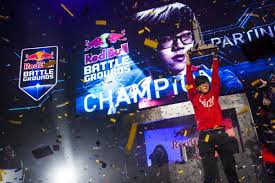The Evolution of Competitive Gaming: Thrills, Skills, and Victory

The Thrill of Competitive Gaming
Competitive gaming, also known as esports, has taken the world by storm in recent years. What was once a niche hobby has now evolved into a global phenomenon, attracting millions of players and spectators alike.
At its core, competitive gaming involves players from around the world coming together to test their skills in various video games. These competitions can range from small local events to massive international tournaments with substantial prize pools.
One of the key appeals of competitive gaming is the intense level of competition it offers. Players must constantly hone their skills, strategize with teammates, and adapt to ever-changing game dynamics to stay ahead of the curve. The thrill of facing off against equally skilled opponents in high-stakes matches is unmatched.
Moreover, competitive gaming fosters a sense of community among players. Whether competing solo or as part of a team, gamers form bonds with like-minded individuals who share their passion for gaming. These connections often extend beyond the virtual realm, leading to friendships and camaraderie that transcend geographical boundaries.
Another aspect that sets competitive gaming apart is its accessibility. Unlike traditional sports that may require expensive equipment or specialized training facilities, competitive gaming allows anyone with a computer or console to participate. This inclusivity has helped democratize esports and attract a diverse range of players from different backgrounds.
As the popularity of competitive gaming continues to soar, so too does its influence on popular culture. Esports events now fill arenas and draw online viewership numbers that rival traditional sports broadcasts. Professional gamers have become celebrities in their own right, inspiring legions of fans and shaping trends in entertainment and technology.
In conclusion, competitive gaming offers an exhilarating blend of skill, strategy, community, and accessibility that captivates players and spectators alike. Whether you’re a seasoned pro or a casual gamer, there’s always room to experience the excitement and camaraderie that define this thrilling world of esports.
Top 5 Frequently Asked Questions About Competitive Gaming
- What is competitive gaming?
- How can I get started in competitive gaming?
- What are the most popular esports games?
- How do players train for competitive gaming?
- Are there age restrictions for participating in competitive gaming tournaments?
What is competitive gaming?
Competitive gaming, often referred to as esports, is a form of organized multiplayer video game competition where players or teams compete against each other in various gaming titles. It involves skilled individuals or groups facing off in structured matches with the goal of outplaying their opponents to achieve victory. Competitive gaming encompasses a wide range of genres, from strategy and first-person shooters to sports and fighting games. Players participating in competitive gaming dedicate time to practice, develop strategies, and improve their gameplay to excel in tournaments and leagues. The competitive gaming scene has grown significantly in recent years, attracting a diverse community of players, fans, and sponsors who are drawn to the excitement, skill, and camaraderie that define this dynamic and rapidly evolving industry.
How can I get started in competitive gaming?
For those looking to venture into competitive gaming, getting started can be an exciting yet daunting prospect. The first step is to choose a game that resonates with you and that you enjoy playing. Once you’ve found your game, dedicate time to practice and improve your skills. Joining online communities or forums related to the game can help you connect with like-minded individuals, learn strategies, and stay updated on upcoming tournaments. Consider participating in smaller local events or online competitions to gain experience and confidence. Remember, perseverance, patience, and a willingness to learn from both victories and defeats are key traits for success in the world of competitive gaming.
What are the most popular esports games?
In the realm of competitive gaming, one frequently asked question revolves around the most popular esports games. Several titles have risen to prominence in the esports scene, attracting a massive following of players and spectators alike. Games such as League of Legends, Dota 2, Counter-Strike: Global Offensive (CS:GO), Overwatch, and Fortnite are among the top contenders, known for their strategic depth, fast-paced gameplay, and vibrant competitive scenes. These games have established themselves as mainstays in the world of esports, drawing in professional teams, dedicated fan bases, and lucrative tournaments that showcase the skill and talent of top players on a global stage.
How do players train for competitive gaming?
Players train for competitive gaming through a combination of dedicated practice, strategic analysis, and mental preparation. Many top players spend hours honing their skills in-game, practicing specific mechanics, strategies, and techniques to improve their performance. They also study gameplay footage of themselves and other skilled players to identify strengths, weaknesses, and new tactics. Additionally, players often focus on maintaining physical and mental well-being through exercise, healthy habits, and mindfulness techniques to stay sharp during intense competitions. Overall, training for competitive gaming requires discipline, focus, and a willingness to continuously learn and adapt in pursuit of excellence.
Are there age restrictions for participating in competitive gaming tournaments?
Age restrictions for participating in competitive gaming tournaments vary depending on the specific tournament organizer and game being played. While some tournaments may have minimum age requirements to ensure fair competition and compliance with local regulations, others may be open to players of all ages. It is essential for aspiring participants to carefully review the rules and regulations of each tournament they wish to enter to determine if there are any age restrictions in place. Additionally, younger players may need parental consent or supervision to participate in certain events. Overall, the presence of age restrictions in competitive gaming tournaments aims to maintain a level playing field while promoting a safe and enjoyable experience for all participants.



Leave a Comment